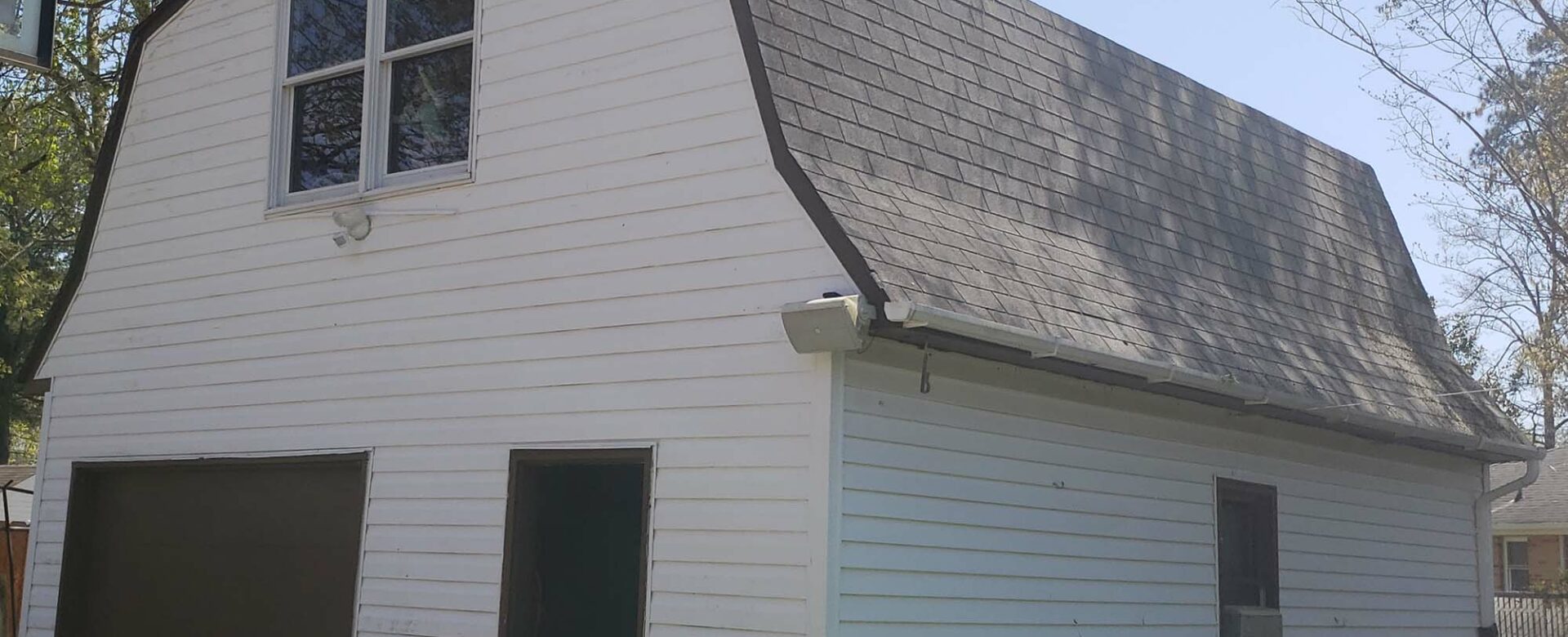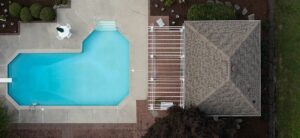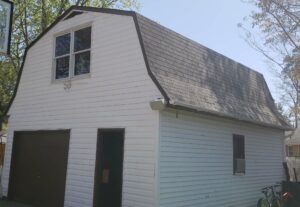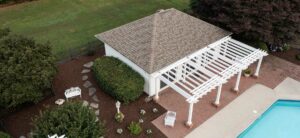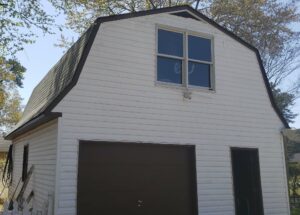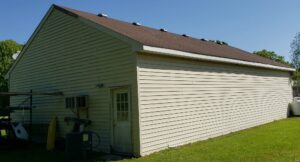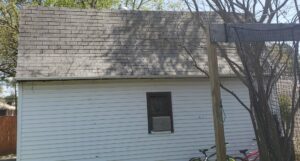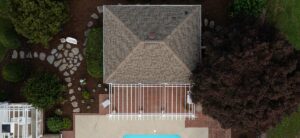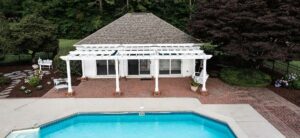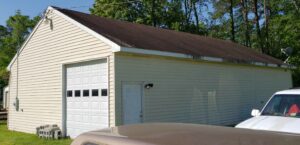When you think about roof maintenance, your mind probably goes right to the largest roof you have to deal with – the one over your home.
But if you have any exterior stand-alone structures on your property, their roofs need to be inspected and maintained just like your home’s. This may include garages, sheds, pool houses, barns or workshops. It’s particularly important to keep an eye on these structures if they store expensive equipment or other important items to avoid any type of damage.
The roof on an outbuilding can experience additional challenges that your home’s roof may not have, and there are additional ways to inspect and maintain these structures. Here are a few of our tips for maintaining and extending the life of your stand-alone structure’s roof.
Regular Visual Inspections
Like your home’s roof, you should inspect the roofs of these structures on a regular basis and especially after storm events. Depending on the size of these structures, it may be a little easier to visually inspect their condition from the ground. Look for the same telltale signs that you would on your home’s roof: missing shingles, warped or algae covered shingles, loose or missing flashing, clogged or damaged gutters and of course – holes or other damage. Check the eaves for nests of any kind – birds, bees, wasps, squirrels or any other type of animal nest can cause serious damage.
Safely Clean Them from the Ground
Again, the roof line of these structures may be a bit lower which may make it possible to safely clean them off yourself. A buildup of leaves, moss, or a few sticks and branches may seem benign, but they can cause damage if left alone for too long. Moss and algae – which are common in the Hampton Roads region – can collect on areas of the roof that do not get much direct sunlight. If they aren’t dealt with, they can weaken your roof over time.
If the roof is low enough and you have a strong enough hose, the first cleaning approach may be to simply spray it down to remove debris and build up. If that doesn’t do the trick, you can invest in a soft bristled roof rake which can be used from the ground to rake off debris and even some mildew and algae. Make sure not to scrub too hard to avoid damaging any roofing materials.
Remove Potential Hazards
Make sure to keep any nearby trees or bushes trimmed back. Limbs and branches that lean or hang over your outbuilding could cause extensive damage over time from friction or in an instant during one of our regular southeastern Virginia pop-up storms. If the vegetation around the building is small and light enough, you can take care of it yourself, but if there are any substantial trees or branches that should be removed, always call a professional.
Check Inside for Pests
It’s important to check the interior of these structures regularly. Some roofing issues can’t be seen from the outside. So even if your barn or shed is full to the rafters, make it a point to inspect the interior at least twice a year and after major storm events. The most critical interior areas of these structures may be the corners where animals are most likely to have built nests or created pathways to access the inside. Birds, insects and rats or squirrels can wreak havoc on a roof, chewing through materials or causing damage to rafters and sheathing. If you find anything, get in touch with a professional pest control company or animal control.
Whatever type of outbuilding you may have on your property, it’s likely that it houses something important enough for you to protect. Make sure the roofing on these structures is doing its job as best as possible with regular inspections and maintenance. If you see any signs of damage and believe your structure needs roofing repair or replacement, contact Andrews Roofing today. We are experienced in the types of environmental issues that structures in the Tidewater Region experience and know the best types of materials and methods to prevent further damage.
